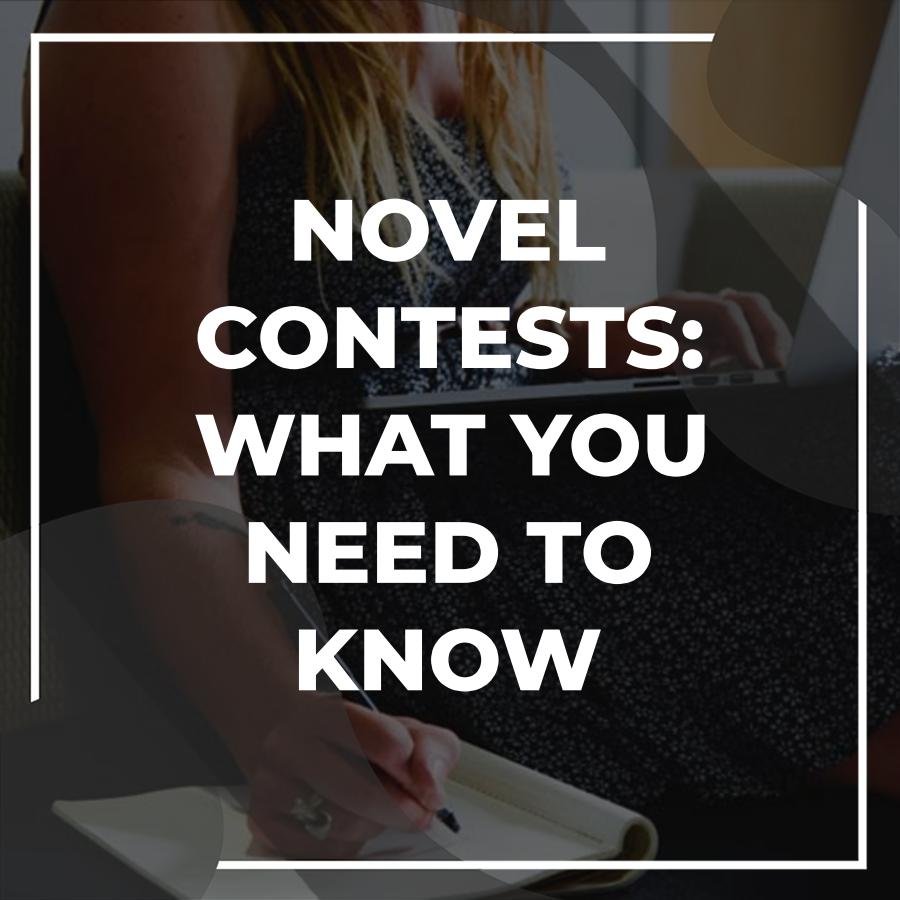Novel competitions can feel intimidating to aspiring authors. With so many participants and varying criteria, it’s easy to get lost in the fray. However, these competitions serve as exceptional platforms for writers to showcase their work, receive feedback, and potentially gain recognition. The key to succeeding in a novel competition lies in understanding the purpose, navigating the criteria, and welcoming the comments.
Table of Contents
What Are Novel Competitions and Why Do They Matter?
Novel competitions are contests where authors (often unpublished or emerging) submit their manuscripts with the hopes of winning awards or being recognized in various ways. They typically come with submission guidelines that outline the eligibility, genre, length, and other criteria.
Competitions like these open doors to new contacts, guidance from experienced writers, and valuable skills for career growth. Winning or placing in such contests can enhance your resume and even open doors to literary agents or publishers.
The Types of Novel Competitions
There are a plethora of novel competitions out there, each catering to different genres, styles, and author experience levels. Here are a few types:
Genre-Specific Contests
Some competitions focus on specific genres, such as romance, science fiction, or mystery. For instance, the Rita Awards, sponsored by the Romance Writers of America, celebrate the best romance novels published in a year. Competing in genre-specific contests lets authors connect with a targeted audience already interested in their work.
Open Contests
Open contests accept submissions across various genres and categories. An example of this is the Writer’s Digest Annual Writing Competition, which welcomes works of fiction, nonfiction, and poetry. Entering means more readers may notice your work, but the competition increases.
Emerging Writer Competitions
Some contests target emerging authors. For example, the Barthelme Prize for Short Prose invites writers who have yet to publish a book-length work. These are great platforms for authors to gain recognition even before they have an entire novel to showcase.
Flash Fiction and Short Story Competitions
While not exactly about novels, flash fiction and short story competitions can be excellent stepping stones for aspiring novelists. Winning these can sharpen your storytelling skills and improve your understanding of pacing and narrative structure, essential skills when crafting longer works. The Bath Flash Fiction Award is a notable example of such a contest that recognizes excellence in brevity.
Understanding Competition Criteria
Before diving into a competition, familiarize yourself with the specific criteria. Each competition will have unique judging parameters, which can include originality, plot development, character depth, and writing style.
Originality
Most competitions want fresh perspectives. You can showcase originality by presenting a unique plot twist or an inventive narrative style. For instance, if your story revolves around a time loop, consider adding elements of magical realism. This approach can differentiate your work from traditional time travel tales, which are often cliché.
Plot Development
A captivating plot is crucial. Writing in mystery, romance, or fantasy should move forward and hold attention. The use of pacing is essential; introducing conflicts, subplots, and stakes at the right moments can make your story tension-packed and thrilling.
A hypothetical scenario involves a thriller writer whose plot centers around a heist. Initially, readers follow the planner as he gathers his team, only to find that betrayal unfolds at the critical moment of the heist. This unexpected twist keeps the narrative fresh and lively until the last page.
Character Depth
Readers invest emotionally in characters. To succeed in a competition, your characters should feel real and relatable. Develop their backgrounds, motivations, and flaws. A well-rounded protagonist will attract readers, while a flat one may repel them.
Consider an aspiring novelist who created a protagonist struggling with impostor syndrome. By including internal monologues and relatable failures, readers connect with the character’s journey toward self-acceptance, making the story emotionally resonant.
Writing Style
Competitions often judge writing for clarity and fluency. A distinctive voice can either elevate or undermine your work. Each choice you make—be it character dialogue, descriptive passages, or narrative pacing—can significantly affect how a reader perceives your writing.
For instance, consider a writer experimenting with first-person narrative interspersed with snappy dialogue. The fresh voice captivates readers and brings a sense of immediacy to the unfolding story.
Setting Realistic Goals
Having realistic expectations can steer your competition experience better. Aim to grow from the experience rather than focus solely on winning.
Setting Milestones
Instead of seeing the competition as the ultimate goal, set minor triumphs. This approach might include completing your manuscript by a specific date or receiving feedback from a certain number of beta readers. Celebrating these milestones can keep you motivated.
For example, an author with a ten-year goal to publish a novel could set yearly goals, like entering at least one competition annually while working on their manuscript.
Adjusting Expectations
Be prepared for varying outcomes. While you may have written the next literary sensation, remember that tastes differ. An entry may win one contest but not another. Being open to different interpretations of your work can alleviate pressure.
Preparing Your Manuscript for Submission
Once you identify the right competition for your work, the real fun begins. Here are key preparation steps to ensure your manuscript shines.
Research Submission Guidelines
Each contest will have specific guidelines that must be strictly followed. Ignoring these could mean instant disqualification—akin to showing up to a formal dinner in flip-flops. Always check for word counts, formatting requirements, and eligibility criteria.
Edit and Polish
Your manuscript should go through rigorous editing and proofreading:
- Editing: This stage focuses on structure, pacing, dialogue, and character development. Consider working with an editor who has experience in your genre.
- Proofreading: This is the final sweep for grammar and spelling errors. Typos can detract from an otherwise stellar narrative.
Seek Feedback
Consider getting feedback from beta readers, writing groups, or pitching your manuscript to a professional editor. Real-world feedback is invaluable. It can provide insights into what works and what doesn’t, potentially saving you from a dismal fate when the judges read your work.
Navigating the Competition Process
Submitting to a novel competition isn’t a one-size-fits-all process; here’s what to expect.
Submission Period
Competitions usually have specific submission windows. Some allow submissions year-round, while others open during certain seasons. Be diligent about these timelines to ensure you don’t miss your opportunity.
Judging Criteria
Understanding judging criteria is crucial. Different competitions focus on various aspects of writing, such as originality, character development, emotional impact, and clarity of prose. Familiarizing yourself with these criteria helps tailor your manuscript to what judges are looking for.
Patience and Anticipation
After submission, expect a waiting period that can last from a few weeks to several months. It’s often a good idea to begin working on new projects during this time—there’s no use twiddling your thumbs while you wait.
Post-Competition: Embracing Rejections and Critiques
Rejection is part of the writing process, and competitions are no exception. Rather than taking rejection personally, use it as an opportunity for growth.
A Real-World Example
A writer joined the NaNoWriMo contest several times. Every year, judges offered helpful advice, but the finals always remained out of reach. Instead of feeling defeated, they revised each draft based on the received comments, ultimately leading to the publication of the novel outside of competition. Embracing critique can help you evolve from a good writer to a great one.
Learning from Feedback
Every piece of feedback—positive or negative—offers valuable lessons. If you find recurring themes in critiques, work on those areas. For instance, if multiple reviewers mention your pacing needs work, consider attending workshops or reading books focused on narrative structure.
Networking and Community Building
Competitions also present networking opportunities among authors, agents, and industry professionals. Building these connections can lead to collaboration, mentorship, and shared experiences that enrich your writing journey.
Attending Events
Participating in awards ceremonies or workshops can connect you genuinely with other writers. These relationships can spur inspiration and may lead to future creative partnerships.
Engaging Online
Utilize social media and writing forums to connect with fellow competitors. Engaging in discussions, sharing experiences, and offering feedback can create a supportive network that benefits your writing endeavors.
Marketing Your Novel Competition Win
Win or place in a novel competition and you gain a powerful boost, profit from that success, and lift your writing career to greater heights.
Promote Your Win Through Social Media
Announce your win on social media platforms. It helps build your platform and connect with readers, agents, and publishers. Remember to tag the competition in your posts, as they may share your news, expanding your reach.
Update Your Writer’s Bio
Showcase your win in your bio and on your author website. Incorporating this added credibility can catch the eye of literary agents or publishers seeking up-and-coming talent.
Consider Self-Publishing
If your prize includes a publishing opportunity, evaluate your suitability for traditional publishing against the self-publishing route. Each option has pros and cons; it’s essential to choose based on your goals.
Staying Competitive in Future Competitions
Winning a contest doesn’t mean you should stop competing. There’s always room for growth and development. Here’s how to stay competitive:
Continue to Write and Submit
Make a habit of writing regularly and submitting to various competitions. The more you do it, the better you get. It also increases your chances of recognition.
Attend Workshops and Seminars
Look for local or online workshops, conferences, and seminars for writers. Learning from industry professionals can help you perfect your craft and offer new perspectives.
Join Writing Communities
Engagement in writing communities can provide support and resources that enhance your skills. Consider joining groups focused on specific challenges, such as plot development or dialogue crafting.
Additional Information
Novel competitions can be a treasure trove of unexpected insights. Here are some little-known secrets that can help you navigate the world of literary contests.
- Hidden Submission Fees: Some competitions require submission fees that may not immediately arise. Always read the fine print to catch any sneaky charges.
- Judging by Peers: Many contests employ judges who are also authors or industry insiders. This approach can lead to interesting biases toward particular genres, writing styles, or even friendships.
- Formatting Rules Matter: Details like font size, margins, and line spacing can make or break a submission. Disregarding these often-overlooked details might lead to disqualification.
- Entry Cap: Some competitions limit how many pieces each writer can send in each year. Many feel drawn to submit multiple entries, but review the rules before entering.
- Reading Periods: Judges may not immediately read the novels submitted. Some competitions move slowly, sometimes for months, when handling submissions, so results can take longer to appear than you expect.
- Feedback Mechanism: A handful of competitions offer valuable feedback on submissions, whether you win or lose. This critique can be beneficial for improving future works.
- Competition Partnerships: Some contests partner with publishers or agents, providing winning authors with additional opportunities for publication or representation beyond the prize.
- Social Media Leverage: Winners often gain significant traction on social media, sometimes leading to more followers and book sales than traditional marketing efforts.
- Genre Specificity: Certain competitions are highly genre-specific. Judgment for science fiction might be entirely different from literary fiction, so tailor your work accordingly.
- Diverse Categories: Not all competitions are for novels. Many competitions for novellas, short stories, and poetry can sometimes have many fewer contenders and offer the opportunity to gain recognition.
- Age Isn’t Just a Number: Some competitions are age-restricted, allowing younger or older authors to showcase their talent without facing off against seasoned veterans.
- Alumni Status: Winning or even placing in a competition often grants you honorary “alumni” status, opening doors to networking opportunities with other authors and industry professionals.
- Sweet Prizes: Prizes can range from cash rewards to publishing deals, but some competitions also offer prizes such as workshops or mentorships, which can be as beneficial as cash.
- Publicity Boost: Many contests provide publicity not just for the winners, but sometimes for all participants. This extra recognition can increase your presence among writers and readers alike.
- The Unwritten Rules: Some competitions have unspoken cultures or norms that aren’t officially listed. Researching earlier victors or speaking with former entrants offers valuable insights.
Frequently Asked Questions (FAQs) Related to Novel Competition
Q. What is a novel competition?
A. A novel competition is a contest where writers submit their original novels for a chance to win prizes, recognition, or publication opportunities.
Q. How do I enter a novel competition?
A. To enter, you typically need to read the competition guidelines, prepare your manuscript according to their requirements, and submit it by the deadline, often through an online portal or email.
Q. Are there fees to enter a novel competition?
A. Many competitions charge an entry fee to cover administrative costs, but some are free to enter. Always check the details on their website.
Q. What types of novels can I submit?
A. Most competitions accept various genres, but some may be specific to fiction, nonfiction, or certain categories like romance or science fiction. Ensure to review the competition rules.
Q. What are the prizes for winning a novel competition?
A. Prizes can include cash awards, publishing contracts, literary agent representation, or features in literary magazines, depending on the competition.
Q. How are winners selected in a novel competition?
A. Judges, often consisting of published authors, literary agents, or editors, read the submissions and select winners based on criteria like originality, character development, and writing style.
Q. Can I submit an already-published novel?
A. It depends on the competition. Some competitions allow previously published works, while others require unpublished manuscripts. Always check the specific rules.
Q. Is there an age limit for entering a novel competition?
A. Many competitions welcome participants of all ages, but some may have specific categories for young or adult writers. Read the guidelines to find out.
Q. What if I miss the deadline for submission?
A. Missing the deadline often means you cannot enter that year’s competition. Set reminders and send your entry ahead of time for the best results.
Q. How can I improve my chances of winning a novel competition?
A. To improve your chances, follow the submission guidelines closely, proofread your manuscript, seek feedback from beta readers, and ensure your story is engaging and well-structured.
Conclusion
Novel competitions offer writers an excellent opportunity to showcase their skills, gain recognition, and even jumpstart their careers. Whether you’re a seasoned author or a newcomer to the writing world, participating in these contests can provide valuable experience and feedback. Embrace the challenge, polish your work, and don’t be afraid to share your unique voice. Remember, every competition is a step forward in your writing journey, so enter with enthusiasm and let your creativity shine!







